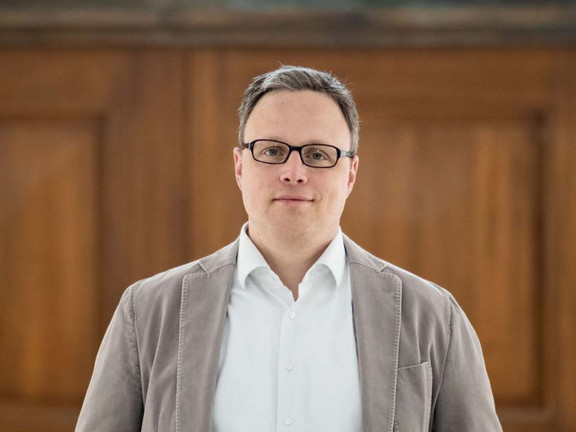Sustainability from a Political Perspective
- Research Alliance Ruhr
- UA Ruhr
- Research

Matthias Kranke’s research group will investigate processes of political governance with regard to social, economic and ecological issues at an international level: “We will analyse how international organisations – such as the European Environment Agency or the United Nations – deal with post-growth ideas, both theoretically and empirically,” explains Kranke.
“Post-growth” refers to concepts that challenge the assumption that continued economic growth is compatible with sustainability. “The big question is what alternative concepts could look like and where they have already gained political significance,” says Kranke. Post-growth ideas are about alternative approaches to organising the economy and society as a whole – through reduced working hours, asset limits, or more efficient use of resources, for instance. The political scientist pursues an interdisciplinary approach in his research and cooperates with scholars from the fields of sociology, ecological economics and environmental psychology. At the UA Ruhr, he would like to further develop this network: beyond the Institute for Socioeconomics (IfSO) at the University of Duisburg-Essen, where he teaches, he is already in contact with researchers at the Institute for Development and Peace (INEF). International collaboration is also important to him – promoted, for example, through an annual workshop series on sustainability and post-growth, which is planned to start in late 2025.
Before his appointment, Matthias Kranke worked as a postdoctoral researcher at the University of Kassel (2019–25) and at the University of Warwick, UK (2018–19), where he completed his PhD in 2017, as well as at Freie Universität Berlin. He was a Fellow at the Freiburg Institute for Advanced Studies (FRIAS) and a Senior Research Fellow at the Centre for Global Cooperation Research, among other positions. He studied social and political sciences in Trier and Lund (Sweden), and International Relations in Sydney (Australia).
***
Further information:
Interview with Matthias Kranke (College website): www.college-uaruhr.de/features
Profile page of the research group ‘Global Sustainability Governance‘: www.college-uaruhr.de/research/research-groups/global-sustainability-governance
Contact:
Prof. Dr Matthias Kranke, College for Social Sciences and Humanities & University of Duisburg-Essen, Faculty of Social Sciences; Phone: 0201/183 65 67; e-mail: matthias.krankecollege-uaruhrde
Press contact:
Melina Wachtling, Phone: 0201/183 65 42; e-mail: melina.wachtlingcollege-uaruhrde
***
About the College for Social Sciences and Humanities
The College for Social Sciences and Humanities is part of the Research Alliance Ruhr founded in 2021. It promotes high-profile research in the social sciences and humanities within the University Alliance Ruhr and advances international cooperation and visibility. As an Institute for Advanced Study, the College provides a cross-university forum for exploring innovative fields of research and stimulates interdisciplinary collaboration in the social sciences and humanities. The cornerstones of the College are research professorships, research groups, and the international Senior Fellowship Programme.

